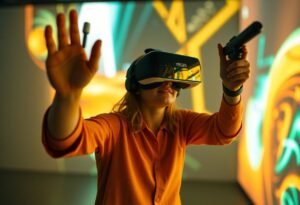The Internet of Things (IoT) has revolutionized healthcare management by integrating innovative technologies that improve patient outcomes, track health metrics, and streamline processes. This article delves into the latest innovations in IoT for healthcare and their profound impact on the industry.
Smart Wearables Enhancing Patient Monitoring
Smart wearables are among the most innovative IoT solutions in healthcare, allowing for real-time tracking of various health metrics such as heart rate, blood pressure, and oxygen levels. These devices enable healthcare providers to monitor patients remotely, leading to timely interventions and improved patient safety. By utilizing data collected from wearables, medical professionals can personalize treatments and make informed decisions, ultimately enhancing patient health outcomes. As more patients adopt these smart devices, the potential for proactive healthcare management increases significantly.
IoT-Enabled Telemedicine Solutions
Telemedicine has emerged as a powerful tool in the healthcare arena, particularly facilitated by IoT technologies. With the rise of connected devices, healthcare professionals can deliver virtual consultations, allowing patients to receive medical advice without the need to visit a clinic physically. This not only saves time but also reduces the risk of exposure to infectious diseases. IoT devices enable seamless communication and data sharing among doctors and patients, fostering a more accessible healthcare environment. The convenience of telemedicine enhances patient satisfaction and broadens the reach of healthcare services.
Remote Patient Management Systems
Remote Patient Management (RPM) systems leverage IoT connectivity to facilitate continuous monitoring of patients with chronic conditions. These systems provide healthcare professionals with real-time data, enabling prompt decisions and reducing hospitalizations. For instance, RPM is especially beneficial for patients with diabetes or heart conditions, allowing healthcare providers to adjust treatments based on the latest data trends. Enhanced communication through these systems allows for better patient engagement and adherence to treatment plans, positively affecting health outcomes and quality of life.
Artificial Intelligence Integration in IoT
The integration of Artificial Intelligence (AI) with IoT devices marks a significant innovation in healthcare management. AI algorithms can analyze vast amounts of data collected from IoT devices, identifying patterns that would otherwise go unnoticed. This capability enhances predictive analytics, allowing for personalized medical care tailored to individual patient needs. Furthermore, AI-powered IoT devices can assist in diagnostics, thereby reducing the burden on healthcare professionals and ensuring faster response times. As AI technology continues to evolve, its synergistic relationship with IoT will further refine healthcare practices.
Blockchain for Secure Patient Data
As healthcare becomes increasingly digitized, the security of patient data is paramount. Blockchain technology offers a promising solution by providing a decentralized and transparent way to store health information. IoT devices can feed data into a blockchain, ensuring that patient records are both secure and easily accessible by authorized personnel. This innovation not only enhances patient privacy but also fosters trust in the healthcare system, as individuals are assured that their sensitive information is adequately protected against breaches and unauthorized access.
Automation in Healthcare Workflows
Innovative IoT solutions are dramatically automating workflows in healthcare settings. For instance, IoT-enabled devices can facilitate inventory management by automatically monitoring medical supplies, notifying staff when stocks are low. This smart automation enhances operational efficiency, allowing healthcare personnel to focus more on patient care rather than administrative tasks. By integrating automation into healthcare workflows, hospitals can reduce costs and improve service delivery, ultimately leading to better patient care and satisfaction. The adoption of IoT in operational processes represents a crucial step toward a more efficient healthcare system.
Disclaimer: This content is intended for informational purposes only and should not be considered a substitute for professional medical advice.





















